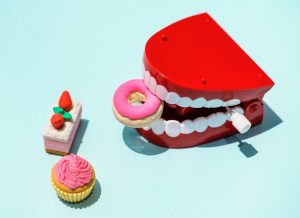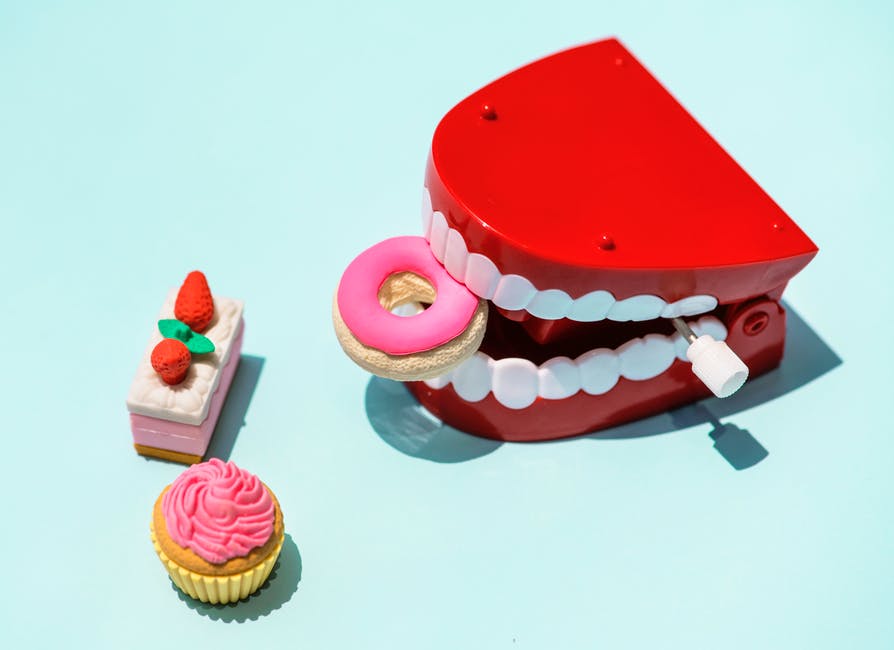 Most parents face the mammoth challenge of installing good oral health habits in their kids. Being a parent means there is so much to be done and you may also be running out of baby or child supplies fast. This is where you need to stop racing about and think of the long-term future of your child. You are doing so much to give it a comfortable and healthy life. Good oral health should be on the top of this priority list as well. It starts with a good dental schedule where you should be the example to your kids.
Most parents face the mammoth challenge of installing good oral health habits in their kids. Being a parent means there is so much to be done and you may also be running out of baby or child supplies fast. This is where you need to stop racing about and think of the long-term future of your child. You are doing so much to give it a comfortable and healthy life. Good oral health should be on the top of this priority list as well. It starts with a good dental schedule where you should be the example to your kids.
The importance of a good dental schedule
The dental schedule you create starts with taking your children to their dental appointments on time regularly. The following are some small milestones you can achieve when it comes to the dental regime of your child-
- Dental care in the early years- If you take a look at your child, you will find that in their first six months, the teeth are developing. Children should be administered with a healthy diet so that they develop healthy gums and teeth.
- First teeth- When the first teeth of your child become visible, you immediately should take him or her to a pediatric dentist. The dentist will conduct an initial screening and develop a regular schedule to monitor the oral health of your child. The visit to the dentist should be once every six months. The first teeth of your child begin to grow at six months till the age of 6 years.
- Permanent teeth- After the age of 6 years, the baby teeth of your child will start to fall out. They generally fall out by 11 years. Besides, their routine check-ups, children at this age should start to brush their teeth.
Keep extra dental supplies at home to make sure they do not run out
When you are shopping for toiletries and groceries, ensure you buy extra toothbrushes, floss, and other dental supplies. This will ensure you never run out of dental health supplies. Always ensure you have extra brushes in the closet. Children should discard their old brushes when worn out. Make choosing the next brush a fun-filled activity for your child. They will be excited to choose their next brush so keep a number of them in the closet stacked up.
Teach your child the importance of good dental habits
Once your child is old enough to hold a brush, the onus of teaching your child good oral habits begins for you as a parent. Monitor the way they brush their teeth. In the beginning, they might not be able to hold a brush properly. Teach them why it is important to brush their teeth twice daily. In order to make dental health interesting for your child, start with the following tips-
- Educational shows on TV and books- There is plenty of educational content on TV for your child to watch when it comes to dental health. Kids should watch them and understand the importance of why they should brush their teeth daily. You can make the learning process more interesting when you take dental books and start to read them with your child together. There are several books targeted at kids, and you can read together with the simple instructions written by experts as to how to keep their teeth healthy and strong. If you educate your child at an early age, this goes a very long way in helping them develop good oral habits.
- Dental charts- Making a dental chart with your child is fun. Cut out pictures from magazines and write down instructions on how to brush their teeth correctly. Children can also write down these instructions in colorful crayons. Hang this chart near the sink so that every time your child goes to the sink to brush his or her teeth, it is visible. This dental chart will help your child remember the basics of brushing as well. They will remember the instructions daily. With time these instructions will become a habit for them.
- An example is better than precept- You should always lead by example. Dr. Kyle Triggs, a dentist in Anchorage says that you should not tell your kids to brush your teeth. Brush with them so that they follow your example. Like them, you should also take care of your teeth so that you face no dental issues.
- Show them- Instead of showing your children how to brush their teeth, tell them why it is vital for good health. Of course, you should wait for the time till they are old enough to understand what you mean. Tell them the health risks you will face if you do not brush your teeth regularly. Explain to them what teeth and gums can do to their health if they stop brushing their teeth. Motivate them daily to floss and brush their teeth once they become older. When it comes to flossing talk with your dentist to understand the right age for them to begin flossing.
- Get your child interested in oral hygiene- Create fun activities for your child. Take them to the local stores and ask them to pick their own toothpaste and toothbrushes. This gives them a sense of responsibility when it comes to promising you they will take care of their teeth daily.
- Risks- Explain the meaning of cavities, tooth loss and gum disease to your child. If they are really small, tell them that if they do not brush their teeth regularly, their breath will stink and germs will reside in their mouths.
- Teach them the correct way of brushing their teeth- Children should not brush their teeth too hard. This strips off the enamel of their teeth and harms them in the process.
As a parent, it is prudent for you to teach your kids the importance of good oral health early in life. This will ensure they take the responsibility of looking after their teeth on their own in the long run.
Are pacifiers and thumb sucking safe for your baby?
Now, if you have a very small child at home and want to take care of his or her oral health, you should be aware of what pacifiers and thumb sucking can do to your child. You may wonder why babies suck the thumbs and are it healthy for them? Babies are born with the natural tendency to suck on something. This instinct is very strong and predominant in babies who are eager to explore the world. This is why they like to keep putting things into their little mouths. The urge to suck reduces when they are six months or so. However, some babies suck the thumbs in a bid to comfort themselves. Most babies suck the thumbs when they feel restless, hungry or scared. However, if the child sucks their thumbs after five years, this could be a sign of emotional disorder or distress.
Thumb sucking and dental health
The use of pacifiers and thumb sucking are okay until the child has no teeth. However, when teeth develop, pacifiers and thumb sucking can spoil the alignment of the teeth in children. This might lead to expensive dental work later. If the child excessively sucks on a pacifier after teeth have grown, this can lead to a number of infections in the ear that might require surgery in future.
Stop thumb sucking
If your child sucks his or her thumb beyond the age of 5 to 6 years, the teeth in the mouth will be pushed around, and this leads to overbites or underbites. There is a possibility of a lisp being formed as the jaw bone is affected. The germs from the thumb invade the body. The roof of the thumb becomes sensitive. The following are some easy tips for you to help a child to stop sucking his/her thumb-
- Do not punish or nag your child for thumb sucking. This creates stress and causes your child to suck the thumbs more.
- Tell your child the prime reason as to why they should not suck their thumb. Explain to them the long-term effects of thumb sucking.
- Get rid of stressors that could be the prime reason why your child is sucking his/her thumb.
- When your child starts to suck on his/her thumb, distract them with a song or a toy.
- Another effective way for you to help your child stop thumb sucking is to cover their thumb with a cloth. This will prevent your child from putting his/her thumb into the mouth.
Dentists are not against thumb sucking before the age of 5 years however if allowed before, this could lead to serious dental implications. It is prudent for you as a parent to help your child stop thumb sucking so that dental health is not impaired. Follow the tips above as this will eliminate the problem with the passage of time with success!

